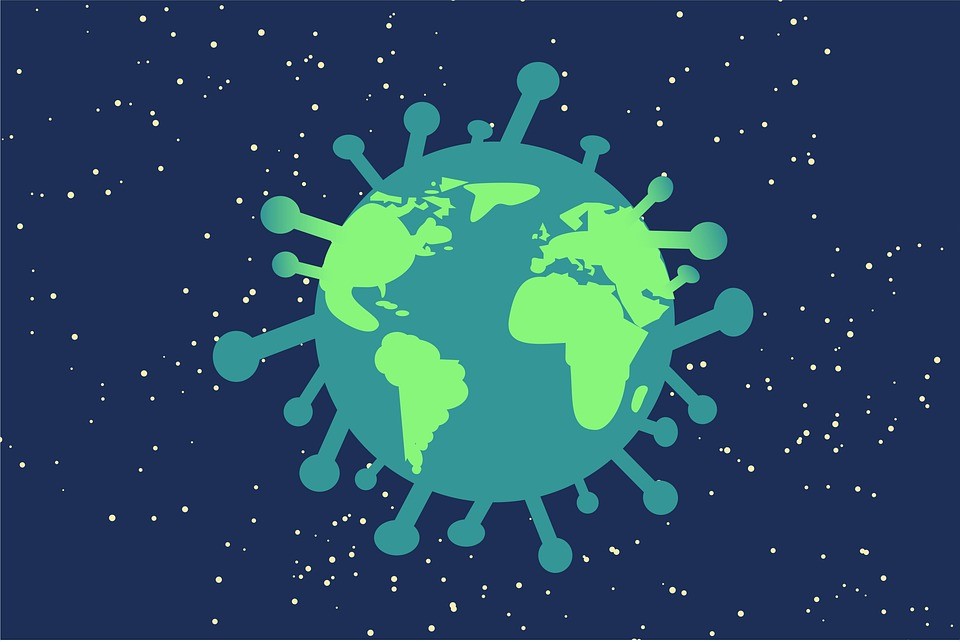
The world was sleeping when the Covid-19 outbreak hit it. We were not expecting what happened and not expecting it to happen to us. It was completely unprecedented. Not only was the scale more significant than anything we had ever expected, but our level of preparation for a pandemic has also left a lot to be said. If we talk historically, we have seen pandemics before but never in the social media age. This is the first pandemic that is reported live to all the countries, and every “fact” is shown. These include the latest updates and information to hoaxes, myths, and conspiracy theories. The entire world’s population is in a constant state of flux. We are hearing different stories from our politicians, healthcare workers, journalists, and other influencers.
What We Forget
Usually, in a pandemic, everybody is so busy fighting the fire that we forget how it can affect us in the long run. We don’t give priority to how a pandemic can change us over the next few years. Yes! Saving lives is essential, and trying to stop the spread is vital, but the long-term effects of a pandemic are equally important, if not more. We must ensure to take the necessary steps for the good of the public’s health; physical and mental.
For instance, an online therapy company has reported that they have seen a 65% jump in the number of their clients since February 2020. Most of the patients that are talking to the counselors and the therapists are reporting Coronavirus related anxieties and other issues. Doctors, healthcare workers, and EMHA holding professionals in leadership positions are all worried about us not prioritizing the mental health factor amid this pandemic.
Let’s see what the effects of a pandemic on the general population as well as the frontline warriors are.
Economic Effects
The most apparent effect that a pandemic of this magnitude has over the people is economic. The stock markets fall, businesses go bankrupt, and more. But the people who are hit the hardest by the economic brunt are the low-wage, hourly workers. They just cannot afford to miss work, especially in times like these. This not only affects their financial situation but also direly affects their health: physical and mental. Financial stability has a direct link to physical as well as mental health. For instance, studies have proven that there is a 10 to 15-year gap between the life expectancy of people who are financially well-set and stable and those who are at the bottom of the food chain. Pandemics usually end up increasing this inequality; short term, as well as long term and adversely, affect the mental well-being of everyone involved.
Social Isolation
We have seen social isolation before. It was not easy then, and it isn’t easy now. Being cooped up in times of a pandemic takes a toll on people’s mental health. Humans are social creatures and crave interaction, the conversation, and the touch. According to an opinion piece written in the journal JAMA Psychiatry, it could also lead to depression and even suicide.
Constant Barrage of News
Never have we been hit by an onslaught of news, information, and opinions than now. Everyone who is anyone has got something to say and something to prove, and they are doing it any way they can. In the pandemics before, we just had the television or the radio as the source of our news. But now, we have all these social media platforms that people can use to disseminate all types of stuff that is not always true. This not only causes stress and anxiety in people who have nothing else to do but sit in their homes and watch TV, or scroll through their social media walls, it also causes depression and fear. Fear is one of the biggest motivators in human beings, and it has given rise to bulk purchasing of toilet papers, and other items as well as an increase in the sales of guns. Research has clearly shown time and again that exposure to distressful media is directly responsible for psychological issues. People have reported problems that are benign, like sleep deprivation and go up to depression and PTSD (Post Traumatic Stress Disorder).
Stigma and Xenophobia
These are the two most important aspects of any pandemic and often the two least prioritized anywhere. Ever since Coronavirus hit the world, a vast number of Chinese people have been shunned and humiliated only because it all started from “their country.” Nobody cares if they have been born in America or anywhere else and have never been to China. A lot of Chinese restaurants have gone down due to this stigma. All of this just gives rise to hatred and racism of the worst kind.
Combine stigma and xenophobia with fear-mongering that is continuously going on, and you have the perfect recipe for mental instability and issues like sleep deprivation, anxiety, depression, suicide, and more.
Conclusion
What we have to realize in all of this is that no one is alone. A pandemic is not something that a person can fight alone. And it is not something where a person should have to feel alone. Whenever trauma hits a society, it makes us realize just how connected or disconnected we are. We need to use this as a means to come together and fight this hand-in-hand.

